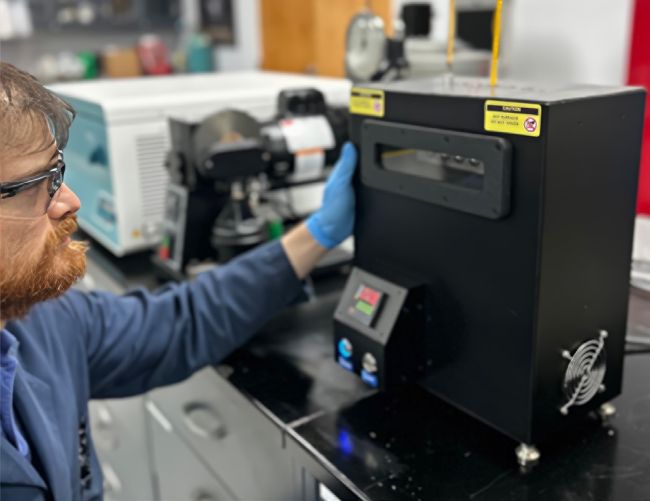Optimizing Grease Performance for Sustainability and the Growing EV Market
A
lthough the rate of transition from the Internal Combustion Engine (ICE) to Electric Vehicles (EV) is difficult to quantify, EV will inevitably become more prominent in the market. This transition will have a sizeable impact on the future of lubrication, yet greases will nevertheless remain vital. In fact, with the plethora of electrical motors and circuits inherent to EV – paired with the increasing focus on sustainability that comes with this transition – choosing the right grease will be critical. While Extreme Pressure (EP) and Antiwear (AW) protection will remain a focus, the delivery of superb corrosion protection, particularly yellow metal protection, will become increasingly paramount.
To this end, the lubricant industry is making significant efforts to develop tests and materials better suited for EV circuits and devices. For instance, the SAE J3200 report covers key tests and protocols for assessing thermal and electrical properties such as conductivity, oxidation and corrosion. The wire corrosion test (WCT) and the Conductivity Deposit Test (CDT) are two examples that are becoming increasingly important for electrified drivetrains. OEMs and lubricant suppliers are utilizing these tests to verify the performance of lubricants and greases.
The WCT measures and utilizes sensitive wire resistance to determine the amount of copper lost from the wire as the test proceeds. This is a vast improvement over older techniques that rely on a visual assessment of a copper specimen. The CDT detects the formation of conductive bridges between tightly spaced conductors while voltage is applied. This is a common situation in electrical systems, as circuits are in close proximity to each other and are in turn in contact with either the lubricating fluid or in the vapor phase. Assessing how fluids and greases protect electrical components in these situations is critical. Savant Group recently displayed these instruments at their STLE exhibition.
With the increasing penetration of EVs in the market, this transition will have a sizeable impact on the future of lubrication, but a key area that will remain vital regardless is that of grease.

SOURCE | IPAC
Using high-performance components and packages that are designed specifically for the EV space delivers optimized protection for these applications. IPAC 2629C and IPAC 2633 are prime examples. These high-end yellow metal corrosion inhibitors provide protection for copper and alloys of copper, and they do so at elevated temperatures while offering additional EP protection. While IPAC 2633 is an excellent all-around choice for protecting yellow metal, IPAC 2629C is suitable for applications where more active sulfur may be present. This is key because sulfur will likely continue to be an essential element in providing EP protection, and deleterious effects can be especially mitigated with IPAC 2629C. This class of components is critical in the driveline segment, and will become more important as more drivetrains are electrified. IPAC technology in manufacturing these components extends around the globe with production sites currently in the Americas and Asia. IPAC continues to expand its reach in producing chemistries such as these.
In addition to components for greases, IPAC also offers stateof-the-art packages across a wide range of performance areas, including scuffing, corrosion and friction. One of these packages is IPAC 2412. This tiered treat rate additive can be used as low as 4% for NLGI GC/LB compliance for many greases without harm to the dropping point or other vital grease structure deliverables.
Using IPAC 2412 in greases provides strong performance without introducing heavy metals such as antimony. It helps the grease maker simplify logistics and inventory by stocking one additive. In addition, IPAC 2412 offers the opportunity to meet the new HPM requirements with the addition of HL in many cases.
IPAC is dedicated to developing the next generation of additives and fluids for the EV market in a sustainable manner. We believe that greases and corrosion inhibitors will be key technologies going forward, and supporting these changes with the latest technology and advancements will ensure longer equipment life. The chemistry IPAC delivers to the market is designed to improve efficiency, provide longer fluid life and reduce degradation of fluids and greases to protect equipment for longer service.
Visit IPAC today at www.ipac-inc.com.